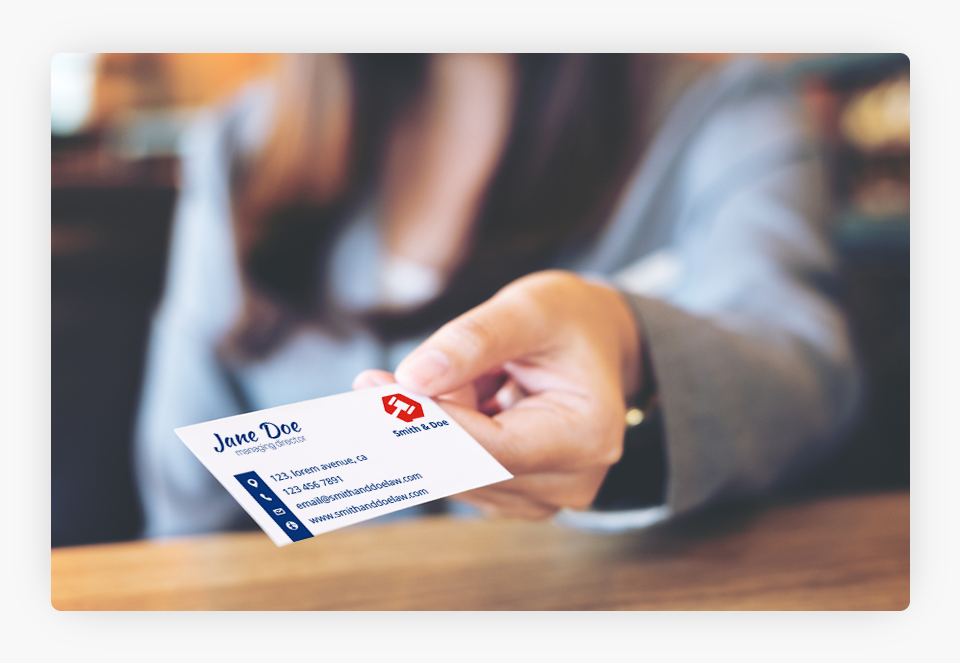We can’t send you updates from Justia Onward without your email.
Unsubscribe at any time.
Marketing to corporate clients, particularly large companies, often requires business lawyers to adopt a unique approach to legal marketing. Check this post out for a few strategies to help you succeed in reaching these organizations.
While no two practice areas can employ fully identical marketing tactics, they often have a lot in common. Relationships and reputation matter to all attorneys. However, marketing a business-oriented practice is still different from marketing in other disciplines and marketing to a large corporation is different from marketing to local or small businesses.
Perhaps you are already a business attorney looking to reach larger companies. Or maybe you practice in another area but are drawn to the allure of high-dollar business disputes. Still yet, maybe you simply want to keep the corporate clients you already have. Whatever your motivation for marketing to corporate clients, you need to use strategies specifically designed for this unique audience.
That is exactly what this post is for! Keep reading for a few strategies designed specifically for lawyers interested in reaching a corporate audience.
The Art of Relationships
Of course, relationships matter in every practice area. Word-of-mouth advertising, referrals, and chance encounters often play a significant role in driving business to attorneys across various practice areas. However, the role of relationships is very important within corporate circles.

In the modern era, company leaders from the CEO to the COO, legal officers, and managers are on LinkedIn. Many of these individuals personally manage their accounts because their name and reputation are at stake. By leveraging LinkedIn, you can reach decision-makers across the company – both inside and outside of the legal department – and build a strong reputation in your field.
To effectively utilize LinkedIn for building relationships, you should connect with everyone or, at minimum, frequently connect with industry leaders and other professionals. You should build your presence by sharing content on both your individual and firm LinkedIn accounts (more on that below) and interact with others’ content via likes, shares, and comments. Once members of your firm have created a strong LinkedIn presence and started fostering these relationships, you can even leverage each others’ networks to expand the reach of your firm even further.
Be Where the People Are
Ninety-five percent of people agree that better business relationships are built through face-to-face meetings. Simply put, you want to build strong relationships with the right people by being where the decision-makers and leaders of these companies are. This means attending industry, business, and networking events offering the opportunity for interactions with people working in the companies you want to represent.

This may mean attending a conference on a unique or niche industry that covers many large companies in your area. For example, parts of the Midwest, Texas, and Louisiana have many oil and gas companies – from well-known names like Exxon, Shell, and Chevron down to smaller refiners, service companies, and supply shipping businesses. In those areas, there are frequently conferences and symposiums for the industry that tie into regulatory concerns and other legal matters. Attending such a conference could help lawyers network with people in these companies that will need a lawyer someday.
You may also want to join local professional and business groups that cover various industries. Many of these organizations offer events, similar to bar associations, where you can meet other professionals and business leaders, especially in the corporations that operate in your local community.

Whenever you participate in these events, keep lots of business cards on you. Attend meetings and educational sessions, but also be sure to prioritize natural settings for conversations, such as meals and happy hours. Dress the part, be friendly, and listen to the conversation to make connections on common ground.
Connect With In-House Counsel
In addition to meeting business leaders, you should strive to make connections with the in-house legal team for these companies. Many large corporations have internal attorneys that run the day-to-day business of the legal department. However, it is often the case that these companies start looking for external backup when something unusual occurs, such as major litigation.
The in-house attorneys frequently have a voice in choosing the outside counsel for the matter. Additionally, these in-house attorneys may work closely with outside counsel throughout the duration of the matter or dispute. Accordingly, building strong relationships with in-house attorneys not only can help you land the corporate client but can also make the working relationship with that client flow more smoothly.
You can consider starting these connections virtually, through CLE events, bar association functions, and other gatherings for legal professionals.
Leverage Referrals
Once you have a few corporate clients added to your book of business, the referral can become an even more powerful tool than usual. Sometimes this is because business owners may be involved in more than one venture. Other times, this is because the leaders of the company have peers at other organizations that need a recommendation.
Regardless, you want to be sure you have set yourself up to receive these meaningful referrals by offering exceptional service and making it known, when possible and appropriate, that you are open to accepting new clients. If a business leader receives a referral for your firm from someone they know or trust in their industry, this greatly increases the likelihood that you will receive a call.
Maintain Your Relationships
Making connections is only the first part of the art of relationships. Maintaining those relationships is the second phase and is crucial to your future success. Once you make these connections, you want to be proactive about fostering your network.
Often you need to take a personalized approach to these interactions. For instance, if you have a working relationship with in-house counsel, you may want to send them an email when there is a new legal development impacting the company. You don’t want to assume that they have not seen a court decision or new law. Instead, you want to come across as simply sending a friendly note to ensure they have seen something important.
For current clients, and sometimes former clients, a holiday card or gift means a lot for fostering the relationship. Depending on the company, and your relationship with the company, you may want to approach this differently.

For instance, if you are working with a small corporation and know all of the owners and leaders, individual gifts may be effective. Typically food-based gifts, such as baskets of goodies or even restaurant gift cards, work well in this scenario. However, if you know someone well, you can tailor the message further. For instance, if you regularly golf with the CEO, a golf gift may be a good choice.
In contrast, if you are focused on a large corporate client, but have built a strong relationship with the legal team or similar group of employees, you may want to send some sort of group gift, such as a treat for the team that can be placed in the breakroom. If you have a smaller budget, a thoughtful card can also be a very valuable tool.
You should also leverage opportunities to continue your relationship with potential, current, and former clients throughout the year. While emails and holiday gifts are certainly nice bonuses, alone they are likely not enough to carry you across the finish line. Instead, you often need more personalized interactions to solidify your working relationship.
In-person meetings and face-to-face interaction can be difficult in the COVID-19 era, as health and safety guidance continues to change. The shift in this arena has certainly increased the importance of online networking and digital interaction (more on that below). However, many still believe that digital events lack good networking opportunities and one business-oriented statistic suggests that 40% of prospects became customers after an in-person meeting as opposed to 16% of prospects when no such meeting occurred.
As such, it seems that in-person interaction is not dead in the business marketing world. Accordingly, you should be planning strategies to maintain your corporate relationships in person once safe to do so. You could always ask to schedule a formal meeting. However, less formal settings are often where the magic occurs that later leads to a strong business relationship.

Long lunches can be a very effective tool in reinforcing your relationship with the company. You could take one key contact out to lunch or perhaps multiple people depending on the situation. One common method of building and maintaining relationships is inviting certain business representatives to attend sporting events in your area. You can also partner with a local company to support a cause in your community and extend invitations to events in which your firm is participating, such as cook-offs or sponsored events.
Share Your Knowledge: Content Creation & Distribution
One of the key ways to market to potential corporate clients is through knowledge sharing. While many corporate leaders may be sophisticated professionals, they are almost always busy and frequently don’t have a legal background. This means you have a prime opportunity to share helpful resources and keep companies informed about the changing legal landscape.
There are two components of effectively working through knowledge sharing: content creation and distribution. As you may have correctly assumed, content creation is the process of actually developing resources that are both helpful and showcase your knowledge. Distribution is the process of sharing that content with a larger audience.
Content Creation: Blogging, White Papers, and More
One of the first things you should do is create a blog for your practice. This should be somewhere that you can publish timely content about changes in the law, as well as share evergreen information on business topics. You must keep his blog up to date.
Your blog should also be well-written and optimized for search engines so that you have the greatest chance possible of drawing in organic traffic. In fact, blogging has strong SEO potential and can really help put your firm on the proverbial map by creating well-ranking content. It is also worth noting that you can combine your blog’s strong SEO with paid ads to reach maximum visibility.

If you are looking for an example of a blog done well, check out the JMBM Global Hospitality Group Hotel Law Blog.
In addition to developing a blog, you can create white papers and other similar content for websites, such as JD Supra, Lexology, and Mondaq, which have a reputation for sharing sophisticated knowledge on legal topics. It is worth your time to write white papers on the topics that are most connected to your core practice areas.

You can also create unwritten content, such as webinars on hot topics that will draw audiences and attention. You may even want to create a series of events, such as lunch and learns, where people can come for information that relates to their business (even if they are not your client).
Distribution: Reaching Your Audience.

One of the first things you should do is create a channel for consistent communication with your contacts. Through this newsletter, you can control the message you send and have a captive audience.
Develop a newsletter that you send to these companies sharing breaking news on case law, legislative updates, and recent regulations. You also want to ensure you offer updates on changing interpretations of regulations, prior jurisprudence, and even longstanding statutes.
Remember, you want this newsletter to be relevant for your readers. Some issues, like workers’ compensation and medical leave, impact most (if not all) companies. However, many other areas of the law are not universal. For instance, a healthcare management company is not likely to be overly interested in a new construction law issue. Likewise, a real estate company building inland apartments is likely unconcerned with new maritime laws.
You can approach this issue in several ways. If you have enough clients in certain industries, you could create specific newsletters geared directly to changing laws that impact those particular segments. However, you could also work on a more general newsletter that focuses only on universally applicable laws. This could be sent to your entire corporate book of business.
Alternatively, you could consider a newsletter that covers various industries but only features one or two matters. This type of newsletter may have relevance to a wider audience but may not be as useful as a more specific newsletter.
Reaching a Wider Audience
You do not want to limit your knowledge-sharing efforts to only the companies with which you presently have contacts. Instead, you want to build your reputation and reach a wider audience of potential corporate clients by disseminating knowledge. This is when distribution in other ways comes into play.
Having your blog content indexed by search engines like Google is one key way of distribution. This helps you reach a wide audience of people across a broad range of backgrounds simply through their searches. Your blog content is ideal for this type of distribution.
However, you also want to look beyond Google. As mentioned above, you should share White Papers, articles, and similar content with sites like JD Supra, Lexology, and Mondaq. These generally have a strong reputation in the legal community for sharing good content.
However, you want to be careful that you are not inadvertently hurting your law firm’s SEO efforts by providing easily indexed duplicate content to these sites. Utilizing pdfs for your white papers can cut down on this issue and also help you better control formatting.
Whenever you share on these third-party sites, you still want to drive writers to become contacts in your personal databases, such as your newsletter list. As such, be sure to include a call-to-action of some sort that invites the reader to subscribe to updates from your firm.
If you are creating unwritten content, you have additional options for distribution. You can upload videos to YouTube or Vimeo and host webinars on platforms like Google Meet and Zoom.
Similarly, you can leverage other platforms, such as speaking engagements to share your knowledge. As a bonus, these platforms also double as a great opportunity for those face-to-face interactions that are often important for creating strong, long-term relationships.
Strengthen Your Digital Presence
Last on this list, but certainly not least, is building a strong digital presence. As you have likely heard in recent years, our society is increasingly digital. In this day and age, most research happens online first. Additionally, the COVID-19 pandemic has inarguably heightened the importance of digital relationships (though the long-term impacts of this remain to be seen). Regardless, you want to ensure you are setting your firm up for success in this arena.
Build a Strong Website

The quality of your website reflects on the quality of your firm. You want to be sure to have an appealing website design that is professional, easy to navigate, and employs SEO best practices for increased visibility. Also, you should ensure your website is accessible for all visitors and is responsive for devices of various sizes.
In short, your website is a digital first impression and you want to always place your best foot forward.
Prioritize Your Digital Reputation

Similarly, you need to ensure you are taking a proactive approach to digital reputation management. Your knowledge-sharing efforts through blogging and white papers play a key role in this process. However, you should also take care to claim (and optimize) lawyer directory profiles. You should also strategically use paid strategies, such as PPC ads and directory placements, to increase your visibility and better control your presence in search results. You should also ensure you are effectively managing your social media presence, so that it reflects positively on your law firm as well.
Final Thoughts: Why Do You Care?
If you want to add corporate clients to your book of business, you should take care to implement marketing practices that are designed with a business audience in mind. Marketing to a corporate client is different than marketing to an individual. However, with a few of the key strategies discussed above, you can be on your way to effectively reaching more potential business clients and ultimately achieving your long-term goals.